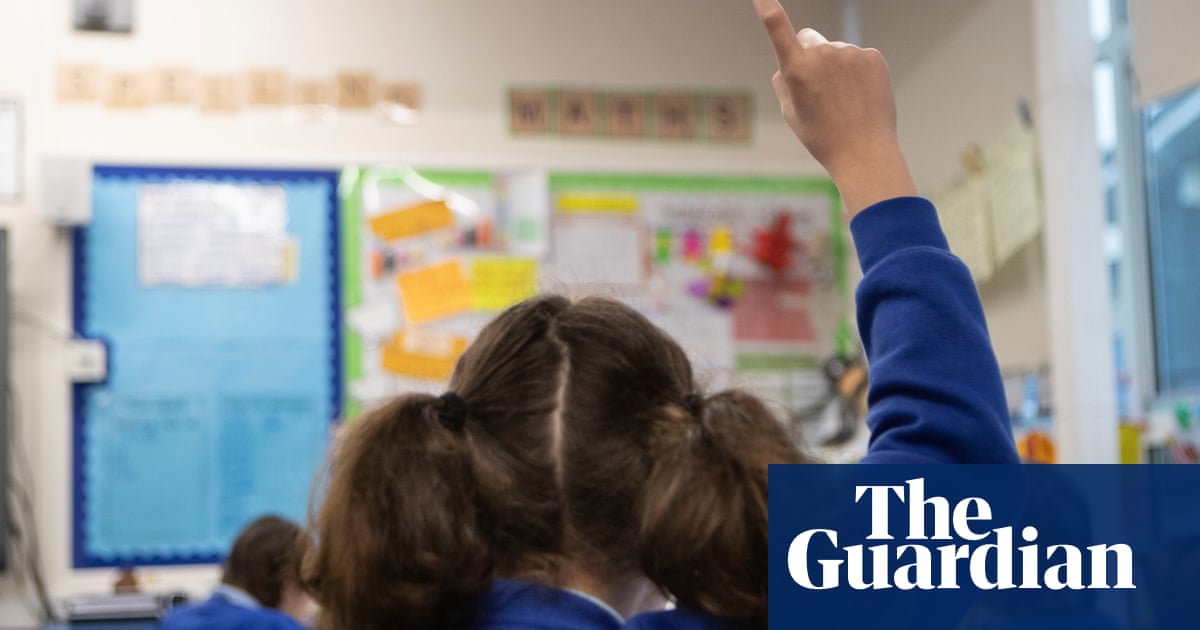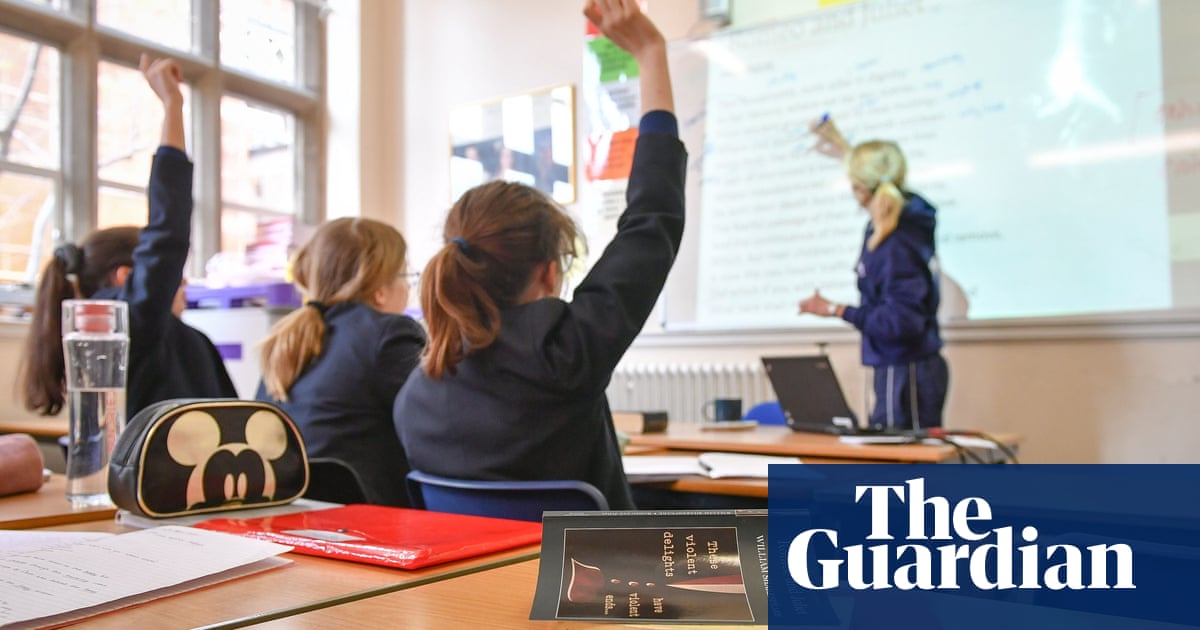
School leaders have accused the government of using children as “a political football” over its proposals to restrict sex education lessons by age in England.
The revised guidance, to be published on Thursday, outlines what topics could be taught to specific age groups, as well as allowing parents access to teaching materials used and further restrict how teachers address gender and sexuality, after pressure from Conservative MPs.
Pepe Di’Iasio, the general secretary of the Association of School and College Leaders, told the BBC: “Pupils are being placed in the middle of a highly sensitive subject and being used as a political football for the sake of headlines when we should be focusing on their wellbeing.”
Di’Iasio added: “We do not think the government has handled the important matter of the teaching of sex education with the care it deserves. It has not consulted with school leaders and we have not seen the guidance that is planned other than through leaked reports to the media.”
Gillian Keegan, the education secretary, will propose the new age ratings for relationship, sex and health education (RSHE) in schools to ensure it is “appropriately and sensitively taught,” according to the Department for Education (DfE).
The revised guidance will restrict explicit discussions of important topics such as contraception and sexual violence until children are in year 9, the third year of secondary school when most pupils are 13.
Keegan said the revised guidance “will support schools with how and when to teach often difficult and sensitive topics, leaving no doubt about what is appropriate to teach pupils at every stage of school.
“Parents can be reassured once and for all their children will only learn age-appropriate content.”
Sex education will not be taught before year 5, and at that point “from a purely scientific standpoint”. The current guidance allows primary schools to decide whether they need to cover any aspect of sex education, based on the needs of their pupils rather than by age.
The guidance will also require schools to show parents all classroom material to be used – a key demand lobbied for by a group of Conservative MPs.
The DfE said the consultation followed “multiple reports of disturbing materials being used in RSHE lessons,” with the updated guidance aiming to ensure that content is factual and that children have the capacity to understand what they are being taught.
While the DfE’s commentary states that “the contested theory of gender identity will not be taught,” the guidance will still allow secondary school pupils to learn about legally protected characteristics such as sexual orientation and gender reassignment.
“In light of the Cass review, it is important that schools take a cautious approach to teaching about this sensitive topic, and do not use any materials that present contested views as fact, including the view that gender is a spectrum,” the DfE said.
The guidance will be expanded to include a dedicated section on sexual harassment and sexual violence, including abusive behaviour such as stalking, as well as advice for teachers about how to address misogynistic online influencers.
Additional content on suicide prevention will be included in the secondary health and wellbeing section, intended to equip pupils to recognise when they or their peers need help.
Louis Appleby, chair of the National Suicide Prevention Strategy Advisory Group, said: “It’s vital that young people are able to understand thoughts of suicide or self-harm that they may be feeling, and that schools are confident in addressing this most sensitive of subjects. The new guidance aims to break down the shame that can make it hard to ask for help and, crucially, places an emphasis on safe ways of coping.”
The DfE said the guidance would help young people understand the benefits of rationing their time spent online and its impact on their wellbeing, and the serious risks of viewing content that promotes self-harm and suicide.
The revisions have been under discussion within the government since March 2023, when Rishi Sunak promised to bring forward new guidance. That followed more than 50 Conservative MPs lobbying the prime minister with claims that children were being “indoctrinated with radical and unevidenced ideologies” about sex and gender.
Presenting the new guidance, Sunak said: “Parents rightly trust that when they send their children to school, they are kept safe and will not be exposed to disturbing content that is inappropriate for their age. That’s why I was horrified to hear reports of this happening in our classrooms last year.”
RSHE is a mandatory subject to be taught in all secondary schools in England, while relationships education has also been compulsory for primary schools since September 2020.
A public consultation on the updated guidance opens on Thursday and will remain open for nine weeks.












